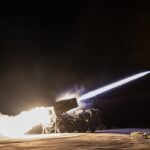A Busan Regional Customs official inspects seized copper scrap from traders at a port in Busan (Courtesy of the Busan Regional Customs)
BUSAN — South Korea is set to punish copper scrap traders, mostly Chinese-operated, for illegal exports as nonferrous metal sector companies on the peninsula struggle to procure the junk amid surging shipments to the mainland.
The Busan Regional Customs said on Tuesday it found alleged illegal exports and price manipultion by seven copper scrap traders across the country. The unit of the Korea Customs Service last month sent the results of the investigations to the prosecution.
“We confirmed those seven traders made unfair profits through illegal exports of copper scrap purchased without tax invoices,” said Lee Dong-hyun, head of the Busan Regional Customs’ investigation coordination division.
The Korea Economic Daily reported in March that China, the world’s top copper consumer, has taken advantage of a South Korean tax loophole to aggressively import the valuable scrap metal from the peninsula.
South Korean manufacturers scrambled for copper scrap as its shipments to China had already quadrupled to 67,043 tons last year from 16,340 tons in 2020. The volume was estimated to be about 100,000 tons more as some copper scrap was shipped to other countries such as Thailand and Malaysia for refining and eventually moved to the mainland, industry sources in Seoul said.
Copper scrap is the most valuable scrap metal commonly used in construction, motors, industrial machinery, and electronics that can be recycled and re-formed without losing its quality.
SIMULTANEOUS RAIDS
The regional customs office in Busan, South Korea’s top port city, identified 28 companies that exported more than 2,000 tons of copper scrap in the four months preceding The Korea Economic Daily story and selected seven firms suspected of illegal activity.
At 10 a.m. on April 11, about 40 officials of the Busan Regional Customs simultaneously raided those companies located in Gimhae, South Gyeongsang Province, Hwaseong and Pyeongtaek, Gyeonggi Province.
Investigators and forensic officials, who had been hiding since the previous day, secured evidence such as computers, mobile phones and books. They also seized 49 tons of copper scrap, which those companies planned to ship to China labeled as iron scrap to cut taxes.
“We needed to raid (the companies) across the country at the same time to prevent the destruction of evidence,” Lee said.
ILLEGAL ACTIVITY
The analysis of those seven companies’ trading over the last five years showed they exported 12,970 tons of copper scrap, or 99.8 billion won ($74.7 million) in value, as iron scrap, the price of which is only about 15% that of copper scrap, according to the customs office.
Those traders reported copper scrap prices much lower than market levels to export 55,078 tons, or 374.3 billion won in value. They declared that they would export the scrap at $0.3-1.2 per kilogram (kg), compared with the global prices of $7.6-8.7 listed on the Global Trade Atlas (GTA).
The seven companies were estimated to have evaded over 77.1 billion won in corporate taxes in total with the lowest tax rate of 19% applied to the lower reported export prices.
They were also suspected of money laundering of up to 139.2 billion won for foreign exchange frauds through virtual assets such as Bitcoin.
Other regional customs in South Korea have changed their export inspection systems to increase random checks on iron and copper scrap ahead of loading since the Busan Regional Customs’ raids.
STABILIZATION
The moves are showing signs of stabilizing the local supply of copper scrap. South Korea exported 16,433 tons of copper scrap in the second quarter, down 25.6% from 22,085 tons in the previous three months, while its prices nearly quadrupled to $4.3 per kg from $1.1 during the period, according to the Korea International Trade Association.
“Prices are being stabilized as Chinese dealers trade copper scrap lawfully with tax invoices,” said a local copper scrap trader.
The global demand for the junk also fell, helping the domestic industry.
Benchmark copper futures on the London Metal Exchange have been sliding after hitting a record high of $11,104 per ton in May, pushing down copper scrap prices in South Korea.
“The copper scrap supply and prices were stabilized as global funds, which had bet on growth in copper demand, unwound their positions and the Chinese construction industry remained sluggish,” said a South Korean brass manufacturer official.
The sliding global copper prices and South Korea’s measures on illegal traders stabilized the domestic market, said Korea Nonferrous Metal Association (KONMA) Managing Director Lee Seung-Hoon.
The domestic copper scrap industry urged the government to keep cracking down on illegal activities.
“The raids prompted Chinese traders to change their smartphones to iPhones, which are difficult to trace,” said an industry source. “They will buy copper scrap illegally for exports repeatedly again once the authorities loosen the grip.”
By Jeong-Seon Lee
leeway@hankyung.com
Jongwoo Cheon edited this article.















